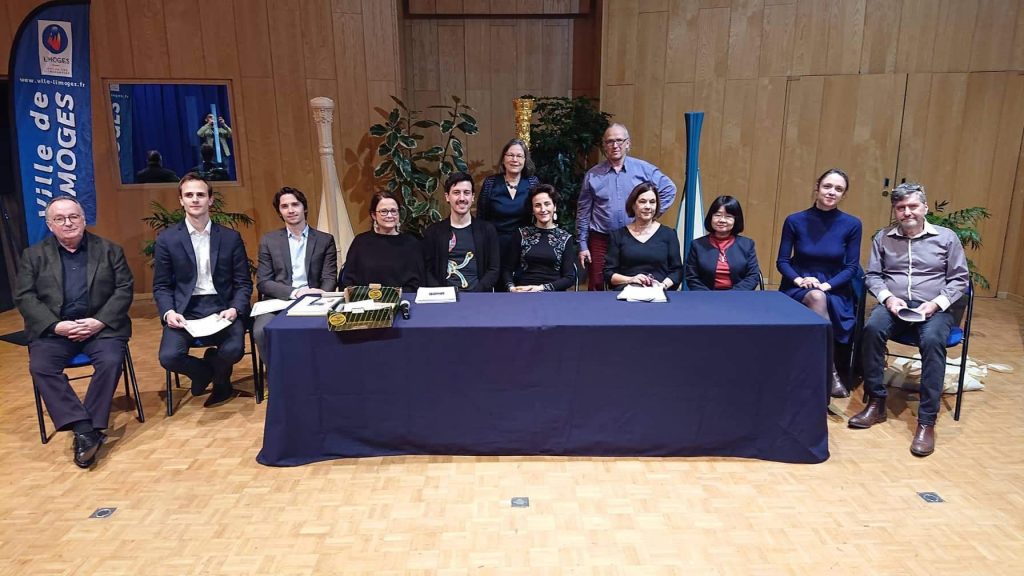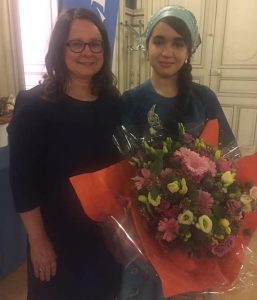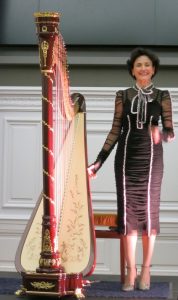Camac Blog
Ten Glorious Years of the Concours de la harpe, Limoges
Latest
February 28, 2019
A quick click on the Camac agenda will reveal that we support many competitions, particularly in the under-25 age bracket. The Concours français de la harpe, held annually in Limoges in France, is a classic example. The founder-directors, Marie-Monique Popesco and Véronique Chenuet, wanted to offer young harpists the chance to compete at all levels, from beginners to young professionals, and on all types of harp, from the smallest lever harps to the concert grand models. The first edition of the competition immediately attracted over a hundred candidates! These numbers have been retained ever since, with a broad reach (sixteen different nationalities, at 2019’s competition).
All participants – no matter how young – have the chance to play for and receive feedback from a top-level jury. This year, it was Isabelle Moretti (president), Agnès Kammerer, Véronique Chenuet, Yumiko Miura, and Viktor Hartobanu. Isabelle Moretti, and 2018’s competition winner Shamim Minoo, also shared a recital on the opening night. This is a fantastic way for candidates to gaze further along their own paths, both their near potential future, and beyond.
The Concours français de la harpe also boasts a particularly warm and candidate-orientated organisation. There are enough harps, enough rooms, and a precious team of volunteers. Each candidate is greeted, announced, and helped to get settled on stage. A volunteer is constantly on hand to adjust a bench and check that everything is as it should be. “Good conditions for competitors has been our priority from the beginning”, explains Véronique Chenuet. “As we would wish for our own pupils, or indeed for ourselves.”
This type of organisation may sound self-evident, or unimportant, depending on your point of view. In any case, it is often forgotten, and the effects of not doing it are underestimated. Younger children usually do not dare to say they are at the wrong height, or even on the wrong harp; older candidates may not speak enough of the competition language to do so. Even where more experienced competitors can technically look after themselves, the presence of enough helpers and a concerned artistic direction makes a huge difference to the entire atmosphere. It gives a sense that somebody has your back, and is rooting for you to achieve your goals.
Competitions are a test of nerves, and psychologically it is very important to collect enough good competition experience. Each time you compete, you will be nervous, but if you have had good experiences in the past, you can reassure yourself that probably everything will be fine, because everything always has been in the past. Should you be unlucky enough to suffer a bad experience, at least it was a one-off, or something that happened alongside a healthy backdrop of better times. In order to exit positively from a competition, you should not have to win – but you do need to feel that conditions were not against you, that the jury was sympathetic and constructive, and that you gained in some way. Before announcing the results, Isabelle Moretti reminded the packed auditorium of this important principle, quoting Nelson Mandela: “I never lose. I either win, or I learn.”
We would like to congratulate Marie-Monique and Véronique most warmly on their decade of tireless, voluntary work, providing young harpists from all over the world with such valuable self-development.
Without further ado: here are the results!




